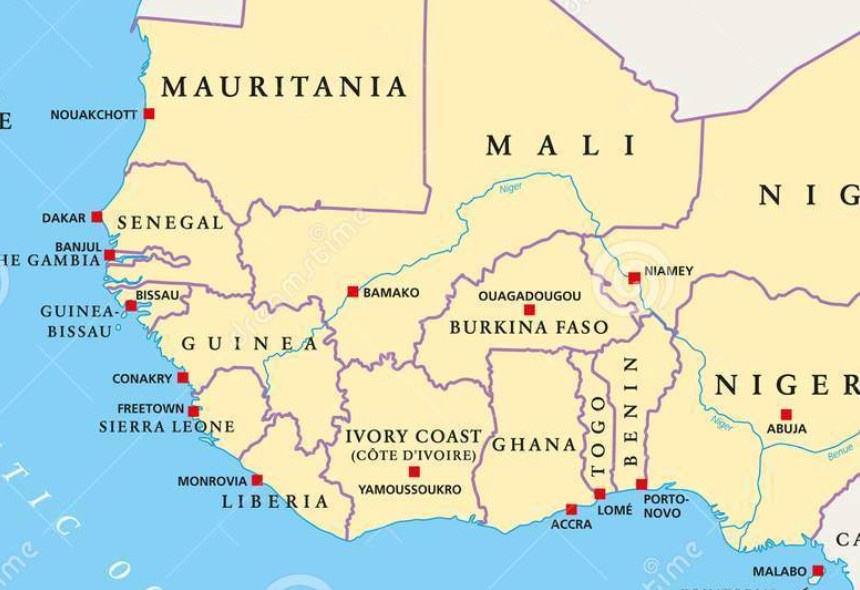France drops homophobic Senegal, Ghana, Benin from ‘safe’ countries list
Colin Stewart is a 45-year journalism veteran living in Southern…
In a decision mostly focused on the dangers facing LGBT people in homophobic nations, Benin, Senegal and Ghana have been dropped from the list of “safe” countries from which France does not expect to receive refugees fleeing for their lives.

“This list of 16 countries drawn up by OFPRA (the French Office for the Protection of Refugees and Stateless Persons) … exposes the nationals of these countries to an expulsion procedure as soon as their asylum application is rejected … even before a possible appeal,” the French newspaper Le Monde explained.
Criteria for the “safe” list include whether a country respects human rights and the principles of liberty, democracy and the rule of law. Now that Benin, Senegal and Ghana have been removed, the remaining 13 nations on the list are Albania, Armenia, Bosnia-Herzegovina, Cape Verde, Georgia, India, Kosovo, North Macedonia, Mauritius, Moldavia, Mongolia, Montenegro and Serbia.
Since at least last fall, Senegal has been in the midst of an anti-gay crackdown inspired by conservative Sufi Muslims.
In Ghana, in the wake of a raid on a newly opened LGBTQ center in February and the arrest of 21 people at an LGBTQ rights training session in May, the nation’s parliament is now considering whether to prohibit LGBTQ rights advocacy and encourage anti-gay “conversion therapy”.
In Benin, according to a 2020 report on human rights from the U.S. Department of State, “Members of the LGBTI community reported police tolerated violence against LGBTI individuals. For example, on July 29 [2020], in the northern town of Bohicon, a group of 15 men attacked and severely beat a transgender woman at a bar. Upon seeking assistance at the police station, police required the victim to stay the night, photographed her injuries and genitalia with their mobile phones, and accused the victim of deceiving the men by identifying as a woman. The victim was asked if she had stolen anything or done anything to provoke the beating. The victim did not file a formal complaint, and as of December police had not conducted an investigation of the assault. ”
More recently, however, the Benin-based LGBTQ rights organization Hirondelle Club Benin reported that a court had sentenced people who attacked three trans women on May 1 to six months in prison.
In a press release dated July 2, the French association ADHEOS (the Association for Homosexual Aid, Defense and Equality of Sexual Orientations) welcomed and explained the removal of the three countries from the “safe” list.
This is a translation of that press release:
ADHEOS welcomes the decision of the Council of State to remove Senegal, Ghana and Benin from the French list of so-called “safe” countries
ADHEOS welcomes the decision today of the Council of State to remove Senegal, Ghana and Benin from the French list of so-called “safe” immigration countries, in a decision motivated mainly by the protection of LGBT people and which offers their nationals the hope of a more lenient asylum procedure in France.

The controversial list of 16 countries established by OFPRA (French Office for the Protection of Refugees and Stateless Persons) is the subject of a legal battle that began at the end of 2019, after the entry into force of the asylum-immigration law which exposes the nationals of these countries to an expulsion procedure as soon as their asylum application is rejected at first instance, even before a possible appeal.
Several associations, including ADHEOS, then turned to the highest administrative court, after OFPRA decided on Nov. 5, 2019, not to modify this list, which has remained unchanged since 2015. “The deliberation of Nov. 5, 2019, of the council of administration of OFPRA is canceled” and “the Republics of Benin, Senegal and Ghana ”must be removed from this list, ruled the Council of State in its decision issued today [July 2].
Thus, nationals of these three countries will no longer be subject to accelerated procedures for their asylum applications, another consequence of placing a country on the list. ADHEOS welcomes the decision of the Council of State for Senegal and Ghana, which explicitly recognizes that it is the risks related to the “sexual orientation” of their nationals that have motivated its decision.
“In view of the existence of legislative provisions penalizing homosexual relations in Senegal and Ghana and the persistence of behaviors, encouraged, favored or simply tolerated by the authorities of these countries, leading to people being able to actually fear to being exposed to (risks) there, OFPRA could not, without committing an error of assessment, consider these States to be safe countries of origin in the examination of the requests presented by their nationals ”.
ADHEOS calls on the Senegalese authorities to act more effectively in the face of public calls for the killings of Senegalese homosexuals. Thus, these radicalized Islamic people, who can be qualified as terrorists, have become dangerous gravediggers of the true message of Islam which in no way calls for the killing of Senegalese by other Senegalese!
Otherwise, Senegal will see its international image tarnished more and more by growing insecurity, at the risk of scaring international investors, tourists, etc., while also compromising its international commitments in terms of respect for human rights. …
Finally, ADHEOS invites the entire Senegalese homosexual population, but also their Senegalese families and friends, to resist oppression and to join human rights defenders as soon as possible through the Free Senegal Collective (collectiffree.urgence@gmail.com).




Qtalk counselor helps gay man cope with death of his son